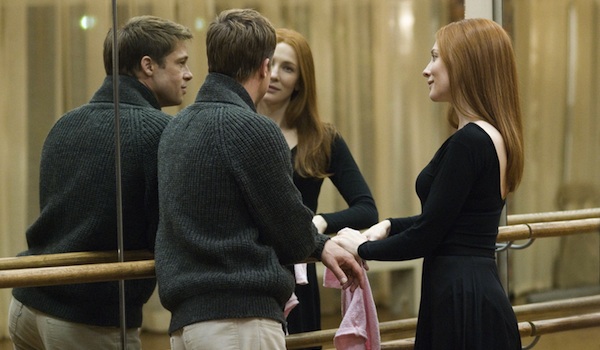The Curious Case of Benjamin Button Review
Until 2008, David Fincher was primarily a genre director—a damn good one, for sure, but a genre director nonetheless. With Se7en and Zodiac, many would argue that his specialty was serial killer films. So I think it surprised a lot of people that he was taking on a project as complex and outside his sweet spot as The Curious Case of Benjamin Button, a deeply heartfelt tragedy about life and loss. But this just might be the director’s biggest accomplishment. He transforms the potentially gimmicky concept into something that will move you and make you think about the people and things you hold dear.
Benjamin Button (Brad Pitt) was born in New Orleans on the night WWI ended. His mother died in childbirth, and his father, after seeing him, drops him on a doorstep with the intention of never seeing him again. Why would a father do such a thing? Because Benjamin Button is different—he was born old.
A kindly woman, Queenie (Taraji P. Henson) takes him in, assuming he won’t survive the night. But Benjamin proves to be resilient. He grows up in Queenie’s nursing home, seeing people die all around him. He also meets Daisy (Cate Blanchett, as an adult), a girl who’s actually his age, but certainly doesn’t look it. We watch Benjamin become a man, travel the world, go to war, fall in love, and as he does his whole life, cope with the deaths of those he loves. But Daisy is never far from his mind. When he returns home, they reconnect, but their immaturity prevents a strong relationship from developing. They part, but fate intervenes, and when they “meet in the middle†(when they finally appear to be the same age), they give in to their feelings. However, for Benjamin Button, some things aren’t meant to last.
The fact that Fincher can relay a story so improbable and covers so many different events (enough to fill a whole lifetime) is incredible. Even more incredible, however, is the way he brings it all home and makes this film about two people and the complex emotions of their situation. Benjamin might be our eyes into the world, but only through Daisy can we understand the tragic nature of his condition and the fragility of life itself. Benjamin’s story isn’t relatable on a superficial level, but anyone who has loved and lost can appreciate what he and Daisy have to go through.
This has to be Fincher’s most technically impressive film yet. The complex effects necessary to age a man in reverse are spectacular to behold. The camerawork is stunning, with clean images and delicate movements. And the score by Alexandre Desplat is one of the finest of the past decade. Its lilting piano melodies are capable of transporting you to a different place one moment and breaking your heart the next. No wonder the Academy decided to bestow upon it 13 nominations.
If there’s a weak spot in the film, it’s the acting, although it’s not a major problem. Brad Pitt has proven he’s more than just a pretty face in the past, and he really has to show it here. He disappears behind the makeup and CGI that makes him look so old, but he’s not quite able to pull off the subtleties that would have made this performance really special. It’s a hard thing to do—capture youth while looking old and vice versa. He just doesn’t do it here. He’s not bad by any means, but he’s not great the way the rest of the film is.
Cate Blanchett is one of the finest actresses working today (her performances in The Aviator and the Elizabeth films are sensational). She, like Pitt, is merely good here. She tries to play Daisy two ways—as a victim of circumstance and as a “love conquers all†optimist. The two interpretations don’t gel all that well, and the character simply comes off as kind of a bitch. But again, these complaints are small potatoes in the entire scope of this film. Their performances are minor imperfections among an otherwise excellent cast (Taraji P. Henson is especially outstanding).
The film has been and will continue to be called by detractors “Forrest Gump in reverse.†But any similarity to Robert Zemeckis’ film is superficial. Sure, both films feature protagonists born in Louisiana with disabilities who grow up and teach everyone around them a little about life. The Curious Case of Benjamin Button is ultimately uplifting, like Forrest Gump, but it’s not the same happy-go-lucky scrapbook of Americana. It’s meditative, it’s slow, and it’s quite sad. It’s also a triumph in every sense of the word. Fincher outdid himself with this one, crafting something that’s epic, engaging, emotional, and completely unlike his previous films.















